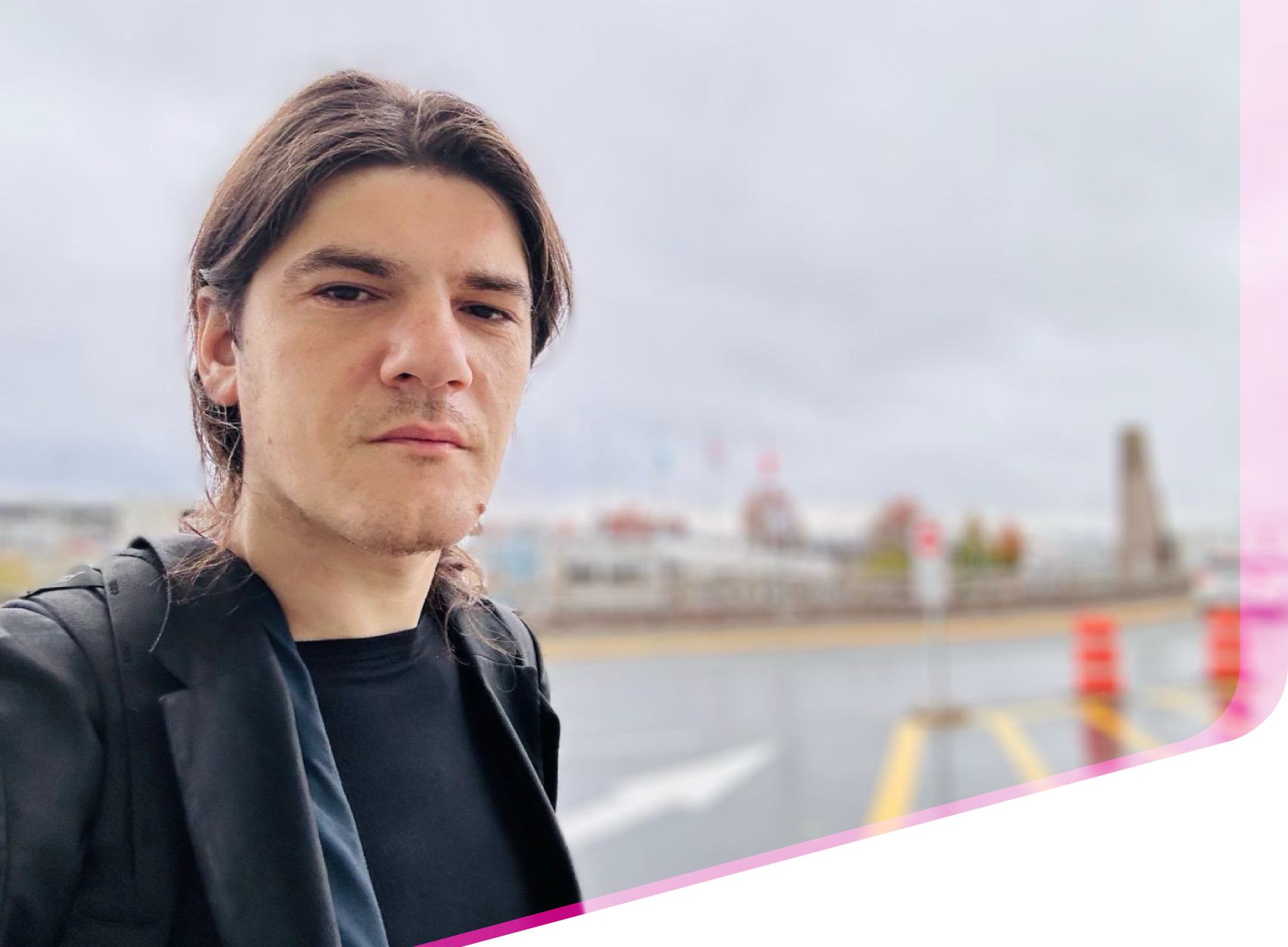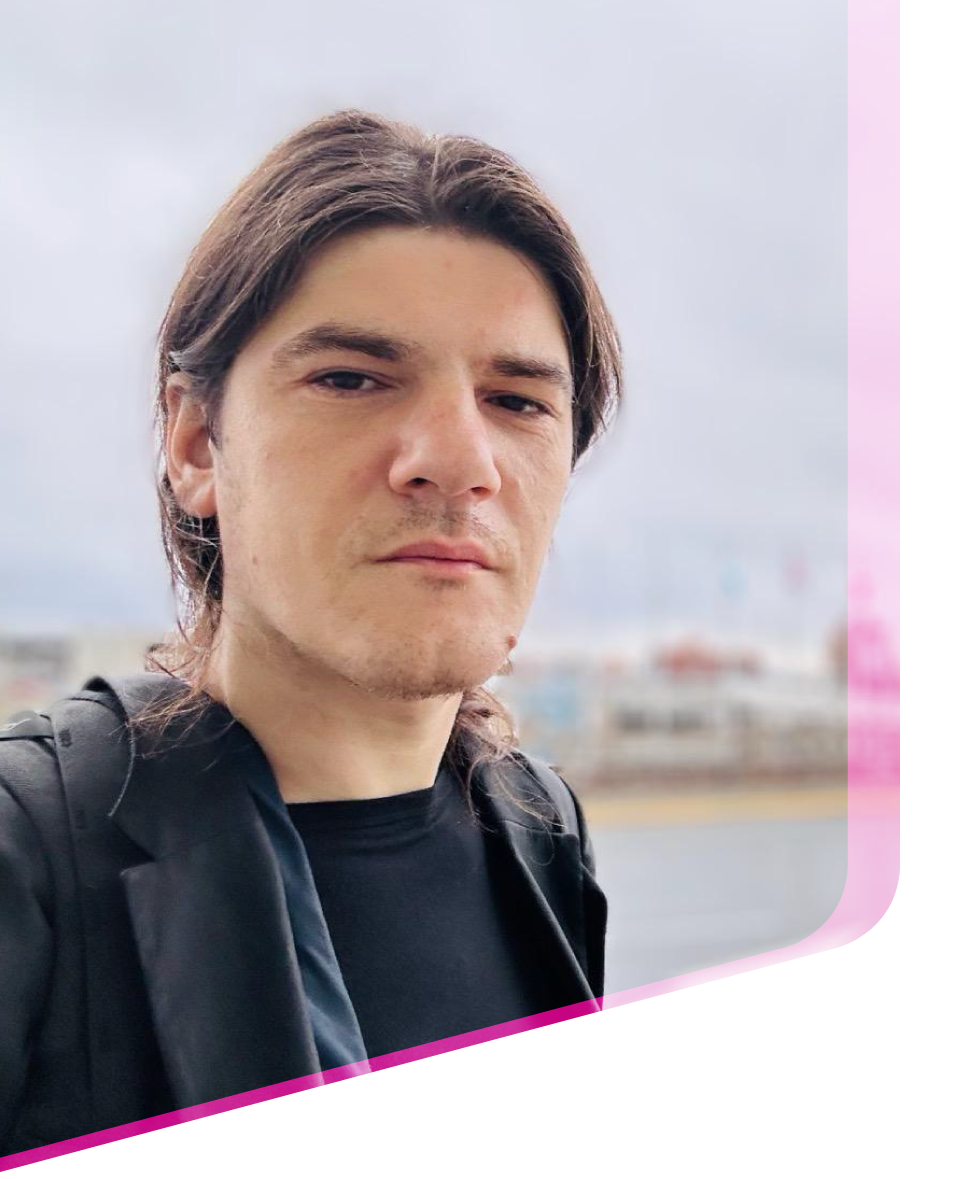
Romania
Romania
Romania
Florin Bădiță
Florin Bădiță
Florin Bădiță
Pro-Democracy activist
Pro-Democracy activist
Pro-Democracy activist

Iran
Florin Bădiță
Pro-Democracy activist
“I am certain that in the future, democratic principles and the fight against corruption will be deeply ingrained in Romanian society.”

VITA
Florin Bădiță, now a well-known activist and architect of street protests in Romania, began his activist journey rooted in a desire to promote democracy, defend human rights, and fight injustice. His first protest was in 2006 against a draft law on cults. This event marked the beginning of his transition from protester to organizer, inspired by the tangible impact of collective action. The tragic Colectiv nightclub fire in 2015, which claimed 64 lives, catalyzed the founding of Corupția Ucide/Corruption Kills, pushing for accountability and systemic change, whilst the 2017 OUG 13 protests turned out to be the largest protest in the country #rezist. Recognized as Forbes’ 30 under 30 and the European Personality of the Year in 2018, these accolades provided him visibility and a platform for his activism.
Can you give us an insight into the personal path that led you to become an activist, especially in the field of democracy and human rights? What specific events or experiences led you to establish the NGO Corupția Ucide /Corruption Kills?
My first protest was in 2006 against a draft law on cults. This event inspired me due to the tangible impact of collective action. My activism became more prominent with the 2012 protests against healthcare reforms and the forced demise of the reform critic Raed Arafat, then Under-Secretary of State for Health. The real turning point was the Colectiv Nightclub Fire, in 2015. On 30 October 2015, a fire at the Colectiv nightclub in Bucharest resulted in 64 deaths and numerous injuries. The tragedy, which was seen as a consequence of widespread corruption, sparked mass protests demanding accountability. The tragedy was a catalyst for the formation of the NGO Corupția Ucide/Corruption Kills. Following the protests, Prime Minister Victor Ponta, Minister Gabriel Oprea, and Sector 4 Mayor Cristian Popescu Piedone resigned.
Could you please detail some of the specific actions or initiatives you have undertaken with Corupția Ucide/Corruption Kills?
In January 2017, the Romanian government passed Ordinance No. 13, which decriminalized certain abuses of power if the financial damage was below 200,000 lei. Corupția Ucide/Corruption Kills mobilized massive protests against the ordinance, with over 500,000 people protesting nationwide at the peak. The government withdrew the ordinance and Justice Minister Florin Iordache resigned. The endeavor took over two years. During that time, we started fostering long-term civic engagement and education. The goal was and is a more transparent and democratic Romania.
Civistarter Workshops are civic entrepreneurship incubators that we held in Bucharest, Cluj, Iasi, and Timisoara. Around 100 young participants were trained in each workshop. The aim was for them to be more civically involved. These workshops are meant to bridge the gap between individuals, NGOs, and public administration. Former Civistarter participants Andreea Ungureanu and Cristian Ghingheș are now running for local council and mayor in Bacau, demonstrating the workshops' success in fostering civic leaders.
Together with Activist House, a hub dedicated to civic engagement and activism, we have also launched a project to provide resources and support for activists.

Could you elaborate on some of the challenges or dangers that you and your colleagues have encountered for your activism and fight against corruption?
Romania’s activists face significant challenges from both state and non-state actors. Threats, constant surveillance, and legal harassment are just a few. Romania’s activists face significant challenges from both state and non-state actors. Burnout and mental health issues are real dangers. As an activist, you will face some tough challenges along the way. Social exclusion, fines, intimidation, and persecution can all take a toll on your mind. Angi Serban, a colleague, was fired from her job due to her visibility in the movement, facing continuous harassment from authorities. We all know that dealing with these things can be tough. The tragic suicides of two Corupția Ucide/Corruption Kills colleagues serve as a stark reminder of this.
The arrest of Angi Serban for a social media post during the farmers’ protests is a clear example of how authorities use fear to suppress dissent. Another instance involved a local coffee shop chain, which supported protesters with free drinks, but was immediately subjected to tax inspections. Such intimidation tactics are designed to discourage public participation in protests and civic activities, reminiscent of a veiled form of communism, where open criticism is stifled. I am certain that in the future, democratic principles and the fight against corruption will be deeply ingrained in Romanian society.
Would you share with us any future plans in the fight against corruption and promoting democracy?
My/our plans include initiatives like OpenStreetMap, a detailed, publicly accessible map, which involves around 10,000 volunteers mapping various public amenities. This project will make essential data publicly accessible, promoting ease of access, and alternatives for city dwellers, for example, illuminated bike roads. For now, water fountains are being mapped in Romania. We will continue the Civistarter workshops to empower youth with civic knowledge and engagement skills, fostering a generation of informed citizens. We will push for more accessible public data to uncover and prevent corruption systematically.
I also plan on running for President with this one clear goal: to bring light to 100 actionable proposals, advocating for issues ranging from digital infrastructure to youth engagement. Through these efforts, we strive to create a more transparent, accountable, and democratic Romania.
Romania
